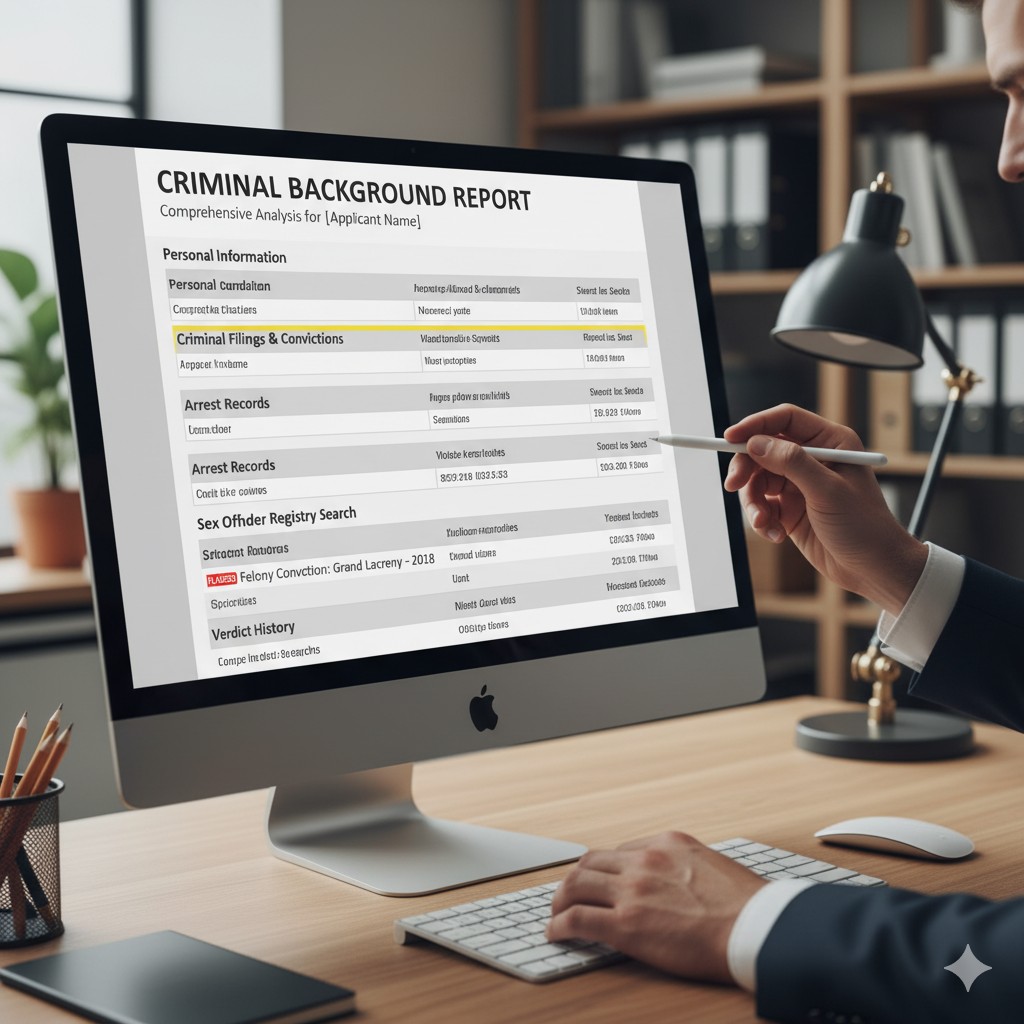What Is a Criminal Background Report?
A criminal background report is a detailed summary of a person's criminal history, compiled from various local, state, and federal sources. It serves as a tool for assessing risk and verifying an individual's past conduct, though its use is regulated by law to protect personal rights.

What's Inside a Report?
Click on each category to learn more about the specific types of information included.
How Reports Are Used
These reports are utilized in various sectors for safety, security, and verification purposes.
Employment Screening
Employers check for histories relevant to job duties, especially for positions of trust.
Tenant Screening
Landlords use reports to assess potential risks to property and other tenants.
Professional Licensing
State boards require checks for licenses in fields like healthcare, law, and education.
Volunteer Applications
Organizations, especially those working with vulnerable populations, vet volunteers.
The Process & Timeline
Understanding how to obtain a report and how far back the information goes is key.
How to Get an Official Report
1. Obtain Consent
For official purposes like employment, you must get written permission from the individual first.
2. Choose a Provider
Select a reputable, FCRA-compliant background check company or use government-provided services.
3. Provide Information
Submit the individual's necessary details, such as full name, date of birth, and social security number.
4. Review the Report
Receive and carefully review the completed report, ensuring you follow all legal guidelines in its use.
How Far Back Do Reports Go?
The "lookback period" is often limited by law, but exceptions exist. This chart shows the general federal rule versus what can be reported for high-salary jobs.
The Legal Landscape
The use of background reports is strictly regulated to ensure fairness and accuracy.
The Fair Credit Reporting Act (FCRA)
This is the primary federal law that governs how background reports are obtained and used. It grants specific rights to individuals and places obligations on employers and screening companies to ensure information is handled responsibly.
✅ Your Rights as an Individual
- You must be notified if a report is used against you.
- You must provide written consent before a report is run for employment.
- You have the right to see a copy of your report.
- You have the right to dispute inaccurate information.
🚫 Restrictions on Users
- Cannot use reports to discriminate based on race, gender, religion, etc.
- Must follow strict procedures for notifying individuals of adverse actions.
- Must ensure the information is securely stored and disposed of.
- Must comply with state and local "Ban the Box" laws.